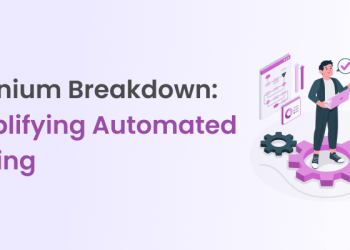When it comes to tackling various tasks, having the right machinery at your disposal can make all the difference. From construction sites to agricultural fields, choosing the appropriate equipment ensures efficiency, safety, and successful completion of projects. In this guide, we’ll walk you through the essential factors to consider when selecting machinery for your job, ensuring you make informed decisions that optimise your operations.
Understanding the Task at Hand
Before delving into the world of machinery, take a moment to fully understand the scope and requirements of your project. What tasks need to be accomplished? What are the specific demands of the job? By having a clear picture of your objectives, you can narrow down your machinery options and avoid investing in equipment that doesn’t align with your needs.
Assessing Equipment Types
Different tasks call for different types of machinery. Whether you’re dealing with earthmoving, materials handling, or specialised agricultural work, there’s an array of machines designed to cater to your needs. These may include excavators, bulldozers, forklifts, and more. Research each type meticulously to grasp their functionalities and limitations, allowing you to select the best fit for your project.
Factors to Consider
- Size and Capacity: The size of the machinery matters. Make sure the equipment is appropriately sized for the task and can handle the load or volume required. An oversized machine might be cumbersome to manoeuvre, while an undersized one can lead to inefficiencies.
- Terrain and Environment: Consider the nature of the terrain where the equipment will be used. Rough terrains require machines with excellent stability and traction. Similarly, the environmental conditions can impact your choice—some machines might be better suited to handle adverse weather than others.
- Fuel Efficiency: In an era of environmental consciousness, fuel efficiency is crucial. Opt for machinery that balances power with fuel economy, helping you save on operational costs and reduce your carbon footprint.
- Operator Skill Level: The expertise of the operator should influence your decision. Some machinery requires specialised skills to operate effectively and safely. If you don’t have skilled operators in-house, you might need to factor in training costs or opt for user-friendly alternatives.
- Maintenance and Support: Like any complex equipment, machinery requires maintenance to ensure longevity. Consider the availability of replacement parts and after-sales support. A well-supported machine can save you significant headaches down the line.
Renting vs. Buying Machineries
When considering machinery, the question of whether to buy or rent often arises. This is especially pertinent to the realm of agricultural work, where tractor hire services have gained popularity. Renting machinery can offer several advantages, such as cost savings, flexibility, and access to the latest models. If your project is short-term or if you’re trying out a new type of equipment, renting might be the wiser choice. On the other hand, if the machinery is indispensable to your operations and long-term projects, buying could be more economical in the long run.
Safety First
Safety should always be a top priority when operating heavy machinery. Ensure that the chosen equipment is equipped with the necessary safety features, and that operators are well-trained in its use. Regular safety checks and adherence to protocols can prevent accidents and ensure a secure working environment.
Testing and Trial Periods
Before committing to a large-scale project, consider running a trial period with the selected machinery. This will give you firsthand experience of how the equipment performs in your specific context. You can identify any potential issues or mismatches between the machinery and your requirements, allowing you to make adjustments before the project kicks into high gear.
Picking the right machinery for the job is a critical decision that impacts the outcome of your projects. By understanding your needs, assessing equipment types, and considering various factors like size, terrain, and fuel efficiency, you’re on the path to making an informed choice. Whether you’re engaging in construction, agriculture, or any other field, remember that the right equipment enhances efficiency, minimises setbacks, and contributes to your overall success. So, embark on your projects with confidence, armed with the knowledge to select machinery that’s tailor-made for success.














